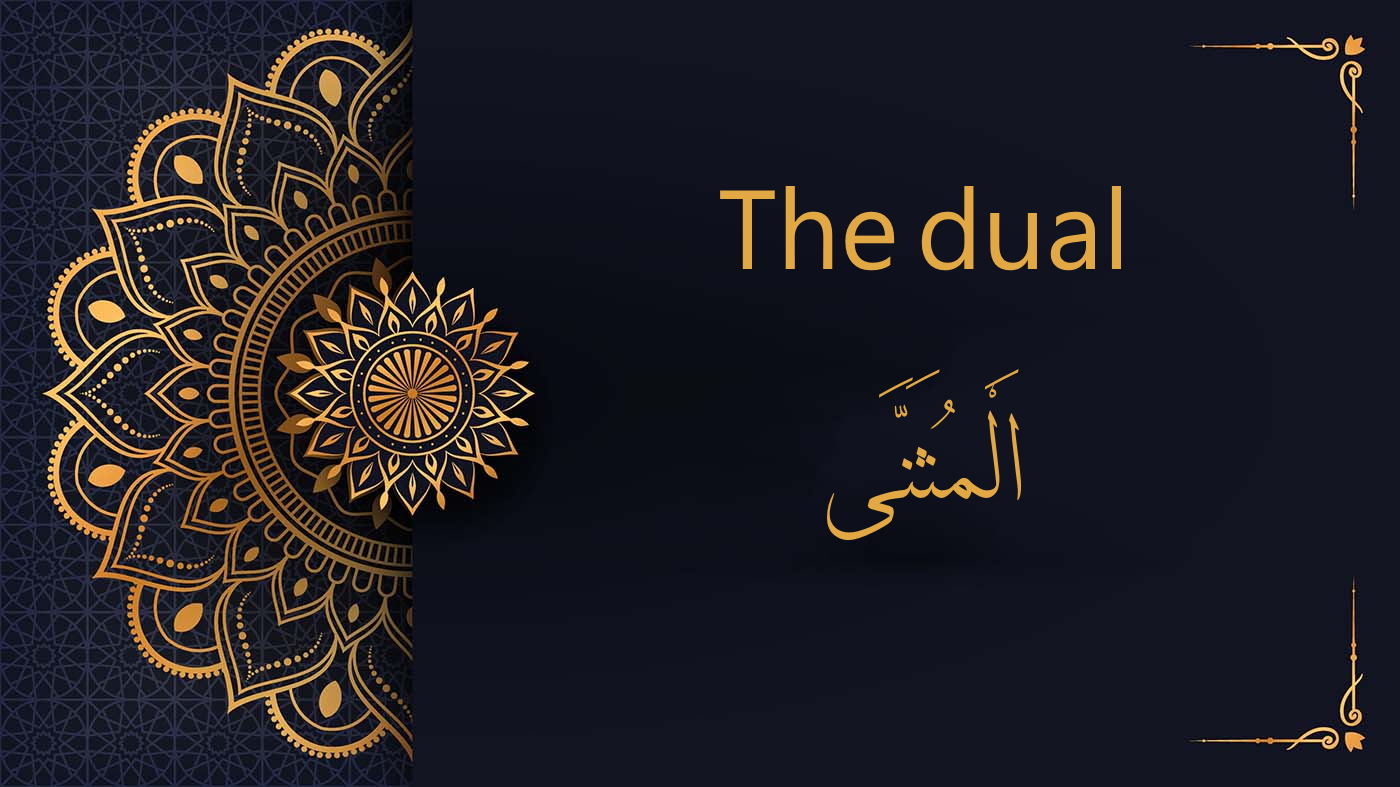The dual in Arabic | الْمُثَنَّى | Free Arabic Course

The dual in Arabic – الْمُثَنَّى Introduction In English, we differentiate between singular and plural forms. In contrast, Arabic encompasses three numerical distinctions: singular, plural, and the unique dual form. المُفْرَدُ Singular الْمُثَتَّى Dual الْجَمْعُ Plural 1. Crafting the Dual Form in Arabic In Arabic, […]

